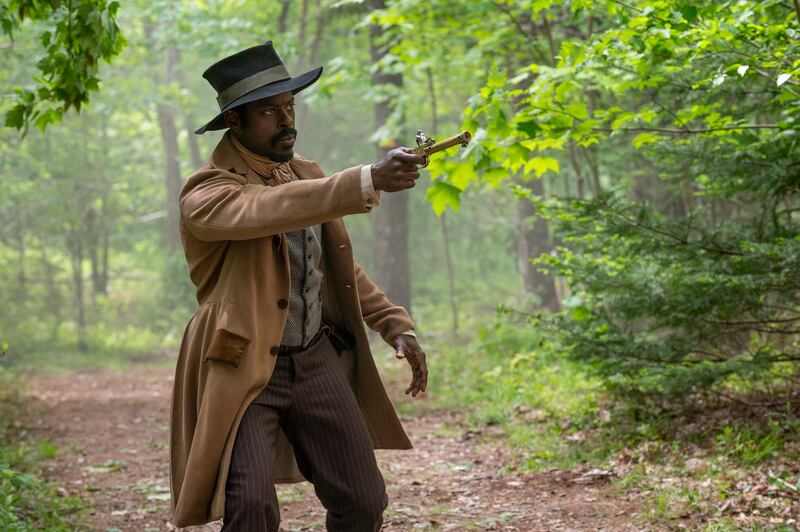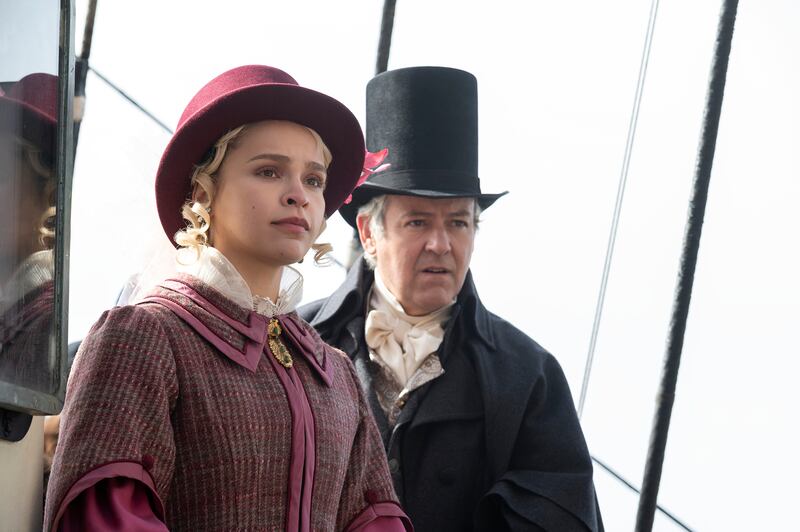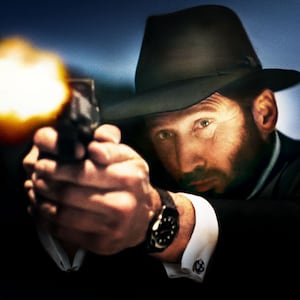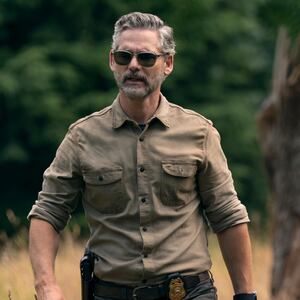The first thing that hits you about Hulu’s new historical drama Washington Black is the enchanting score.
Though the 19th-century-set series, all episodes of which debut July 23, centers on heavy topics like slavery and oppression, its bright, sweeping orchestral music also marks it as a classic adventure story in the vein of Around the World in Eighty Days or Oliver Twist. Led largely by people of color, it’s a confident series that manages to be old-fashioned and modern all at once—clear-eyed about historical truths but also full of whimsical dreams that transcend their time.
It’s an impressive balancing act from creator Selwyn Seyfu Hinds, a former hip-hop critic and comic book author who also penned an episode of Jordan Peele’s Twilight Zone series. Hinds takes the classic “boys adventure story” template and shifts the lens on the characters at its center.
It’s quietly revolutionary to watch a Black scientist journey into the ocean in one of those old-fashioned deep-sea diving suits or see real-life slave rebellion leader Nat Turner positioned as an inspiring folk hero for our young protagonist. While the epic historical tone is familiar, the specific details feel brand new.
Based on Esi Edugyan’s 2018 novel of the same name, the eight-episode coming-of-age series follows two island-born young people who meet in Nova Scotia, Canada.

George Washington Black a.k.a. “Wash” (Ernest Kingsley Jr.) grew up as a slave on a sugar plantation in Barbados, where he developed an early interest in art and science. Tanna Goff (Iola Evans), meanwhile, was born on the Solomon Islands to a white marine biologist father (Rupert Graves) and a Native mother, who died when she was young. Tanna spent her teenage years passing as a white woman in London until she decided to reveal her true racial identity—a fact that sent her and her father looking for new, more accepting shores.
They find that fresh start in Halifax, a Canadian city known as the “last stop on the Underground Railroad.” It’s a melting pot where people of all walks of life live together—from escaped American slaves to Trinidadian shopkeepers to white elites and slave hunters (Billy Boyd) who stop by looking for bounty.
As we meet Wash, he’s living under the alias Jack Crawford, residing in the boarding house of scrappy survivor Medwin Harris (Sterling K. Brown, also an executive producer), and dreaming of inventing a dirigible airship that will allow people to travel the skies.

While sparks fly between Wash and Tanna in the present, a parallel flashback storyline explores his childhood in Barbados and how he came to live under an assumed name in Nova Scotia. Eddie Karanja portrays Wash in his youth as he’s taken under the wing of an eccentric English inventor named Christopher “Titch” Wilde (Tom Ellis), who offers him a way out of the sugarcane fields by taking him on as an apprentice. They’re soon off on a grand voyage that includes classic adventure tropes like flying machines, rowdy pirates, bespectacled scientists, and arctic expeditions.
In fact, Washington Black can be downright corny at times, with a lighter tone and clean, colorful steampunk aesthetic that makes it the sort of show parents and older children can enjoy together. Yet there’s still nuance to its historical storytelling, too. Though Titch is an abolitionist, he also sheepishly asks his slave-owning brother to lend him Wash as free labor—a hypocrisy the show directly calls out. And characters like a noble Black pirate named Barrington (Miles Yekinni) expand Wash’s perspective beyond the mental shackles of slavery and the “good” white men who may not quite be what they seem.
Indeed, there’s a skepticism about Titch and his motivations that lingers in compelling ways throughout the series. Washington Black is less interested in white saviors or even Black pain than it is in the freedom, community, and kinship that Black people were able to claim for themselves in the era of slavery and scientific racism. It’s moving to watch Wash and Barrington bond over shared ancestral traditions or Medwin and his partner Miss Angie (Sharon Duncan-Brewster) build a loving safe haven for Underground Railroad escapees.

For her part, Tana strives to live authentically rather than hide her identity to appease her propriety-minded father. She and Wash are drawn together because of their unusual life journeys and shared love of the natural world—a romanticism that colors the whole series. For every harrowing moment of (mostly offscreen) violence, there’s a warm act of kindness or a shared connection over big dreams.
Sumptuous costuming, location filming, and all-around solid performances seal the deal on a series that’s earnest, hopeful, and thrilling, but with just enough weight to keep one foot grounded in reality. Washington Black will certainly appeal to those who already love zippy period pieces. But it might reach out a hand to a whole new generation of viewers, too.









